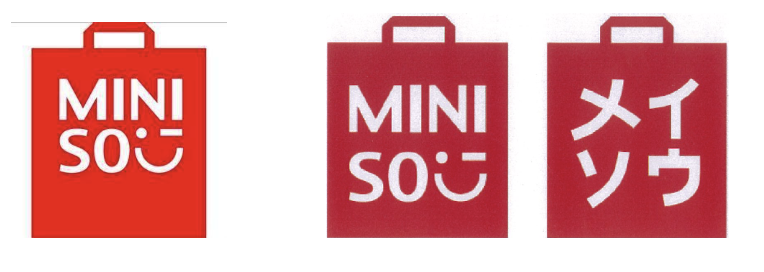EUIPO cancels MINISO trademark due to copyright registration in China

The European IP Office's cancellation of the MINISO trademark based on a copyright registration underlines that a trademark registration can be cancelled for infringing other IP rights, not simply registered trademarks, says Valerie Annan.
In November 2022, Chinese entrepreneur Ye Guofu applied for a declaration of invalidity of the EU figurative trademark for MINISO. The action was not based on an earlier trademark, but rather Ye’s copyright registration. He argued that he is the copyright owner of an artistic work, which was made public in 2013 and registered in China in 2017. The EU trademark infringed this copyright, since it was almost identical. As pictured below, the only difference was the shade of red and the fact that the Chinese translation of MINISO was not included in the EU trademark registration by the retailer MINISO. The Cancellation Division of the EU IP Office (EUIPO) agreed, annulling MINISO’s EU trademark registration.

Copyright registration and EU trademark law
A registered EU trademark (EUTM) gives a trademark owner the right to prevent a third party from using an identical or similar mark for similar goods (without permission) in case it leads to a likelihood of confusion. However, this exclusive right is not unrestricted. Under EU trademark law, a trademark registration can be declared invalid if it conflicts with an earlier right – including copyright – under EU or national law. This so-called relative grounds for invalidity seeks to create a balance between concurrent IP rights.
Ye had published and registered his work in China, which is part of the Berne Convention for the Protection of Literary and Artistic Works. As a result, protection for copyright that has been registered in China and other signatory states is also extended to other signatory countries, including Italy and the EU.
Why copyright registration matters
In this case, there are very obvious similarities between the registered mark and copyright-protected work (to the extent you might wonder which actually came first). However infringement could also be successfully argued in cases where a figurative mark has fewer similarities with a copyright-protected work. When registering a trademark, account should be taken of the chance that a sign contains elements protected by copyright therefore.
For further information and support, speak to your Novagraaf attorney or contact us below.
Valerie Annan works for the Knowledge Management department at our office in Amsterdam.